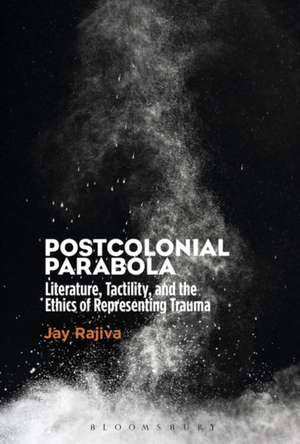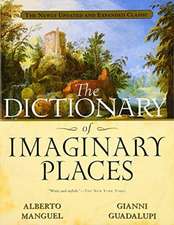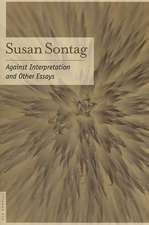Postcolonial Parabola: Literature, Tactility, and the Ethics of Representing Trauma
Autor Dr. Jay Rajivaen Limba Engleză Hardback – 20 sep 2017
| Toate formatele și edițiile | Preț | Express |
|---|---|---|
| Paperback (1) | 229.78 lei 6-8 săpt. | |
| Bloomsbury Publishing – 20 mar 2019 | 229.78 lei 6-8 săpt. | |
| Hardback (1) | 655.74 lei 6-8 săpt. | |
| Bloomsbury Publishing – 20 sep 2017 | 655.74 lei 6-8 săpt. |
Preț: 655.74 lei
Preț vechi: 942.70 lei
-30% Nou
Puncte Express: 984
Preț estimativ în valută:
125.52€ • 136.38$ • 105.50£
125.52€ • 136.38$ • 105.50£
Carte tipărită la comandă
Livrare economică 21 aprilie-05 mai
Preluare comenzi: 021 569.72.76
Specificații
ISBN-13: 9781501325342
ISBN-10: 1501325345
Pagini: 216
Dimensiuni: 152 x 229 mm
Greutate: 0.46 kg
Editura: Bloomsbury Publishing
Colecția Bloomsbury Academic
Locul publicării:New York, United States
ISBN-10: 1501325345
Pagini: 216
Dimensiuni: 152 x 229 mm
Greutate: 0.46 kg
Editura: Bloomsbury Publishing
Colecția Bloomsbury Academic
Locul publicării:New York, United States
Caracteristici
Examines literature from disparate postcolonial periods (apartheid and post-apartheid South Africa, the partition of India, and the Sri Lankan civil war) through a revealing theoretical framework
Notă biografică
Jay Rajiva is Assistant Professor of Global Anglophone Literature at Georgia State University, USA.
Cuprins
AcknowledgmentsIntroduction: Postcolonial Comparison1. Excess and Tactility: Toward Interpretation as Vexed Contact2. Transfixion and Subversion: The Unexpected Endings of J. Devi and Coetzee3. Seduction and Substitution: Behr, Sidhwa, and the Child Narrator4. Motion and Stillness: Surface as Depth in Dangor and OndaatjeConclusion: Postcolonial RelationReferencesNotesIndex
Recenzii
This is an intriguing and conceptually ambitious work.
An ample, philosophy-laced, and at the same time original analysis of postcolonial trauma literature, based on the juxtaposition of two distinct postcolonial histories: Indian Partition and South African apartheid ... Postcolonial Parabola is built on solid theoretical grounds leading to a complex and intriguing argument.
Jay Rajiva's illuminating and engaging book makes a valuable contribution to postcolonial trauma studies. It manages to stand out in this increasingly crowded field thanks to its novel methodology and fresh comparative approach, productively connecting narratives bearing witness to South Asian and South African historical tragedies through a sustained focus on the tactility of the encounter between reader and trauma text.
Postcolonial Parabola is a brave and important milestone in the ongoing attempt to read trauma beyond the Euro-American context of trauma studies. Its subtle, compelling and highly original readings show how, like the arc of a parabola, literary narratives from South Africa and the Indian subcontinent approach but never quite 'touch' traumatic experience. Drawing on the work of Derrida and Nancy, Rajiva takes the phenomenological account of embodiment to its own limit: the reader's experience of postcolonial trauma is necessarily prosthetic, haunted by a distance that it can never quite traverse. In showing how this distance is differently calibrated by the form that each narrative takes, Postcolonial Parabola is a masterfully measured exposition of precisely what it is that postcolonial literature can-and cannot-offer its readers.
An ample, philosophy-laced, and at the same time original analysis of postcolonial trauma literature, based on the juxtaposition of two distinct postcolonial histories: Indian Partition and South African apartheid ... Postcolonial Parabola is built on solid theoretical grounds leading to a complex and intriguing argument.
Jay Rajiva's illuminating and engaging book makes a valuable contribution to postcolonial trauma studies. It manages to stand out in this increasingly crowded field thanks to its novel methodology and fresh comparative approach, productively connecting narratives bearing witness to South Asian and South African historical tragedies through a sustained focus on the tactility of the encounter between reader and trauma text.
Postcolonial Parabola is a brave and important milestone in the ongoing attempt to read trauma beyond the Euro-American context of trauma studies. Its subtle, compelling and highly original readings show how, like the arc of a parabola, literary narratives from South Africa and the Indian subcontinent approach but never quite 'touch' traumatic experience. Drawing on the work of Derrida and Nancy, Rajiva takes the phenomenological account of embodiment to its own limit: the reader's experience of postcolonial trauma is necessarily prosthetic, haunted by a distance that it can never quite traverse. In showing how this distance is differently calibrated by the form that each narrative takes, Postcolonial Parabola is a masterfully measured exposition of precisely what it is that postcolonial literature can-and cannot-offer its readers.













